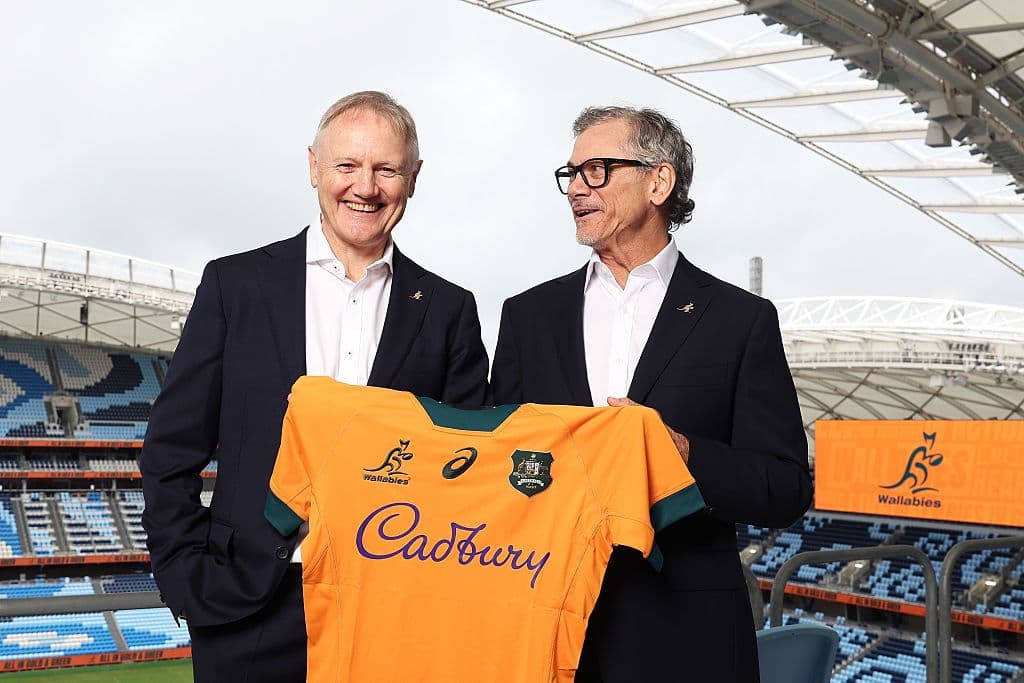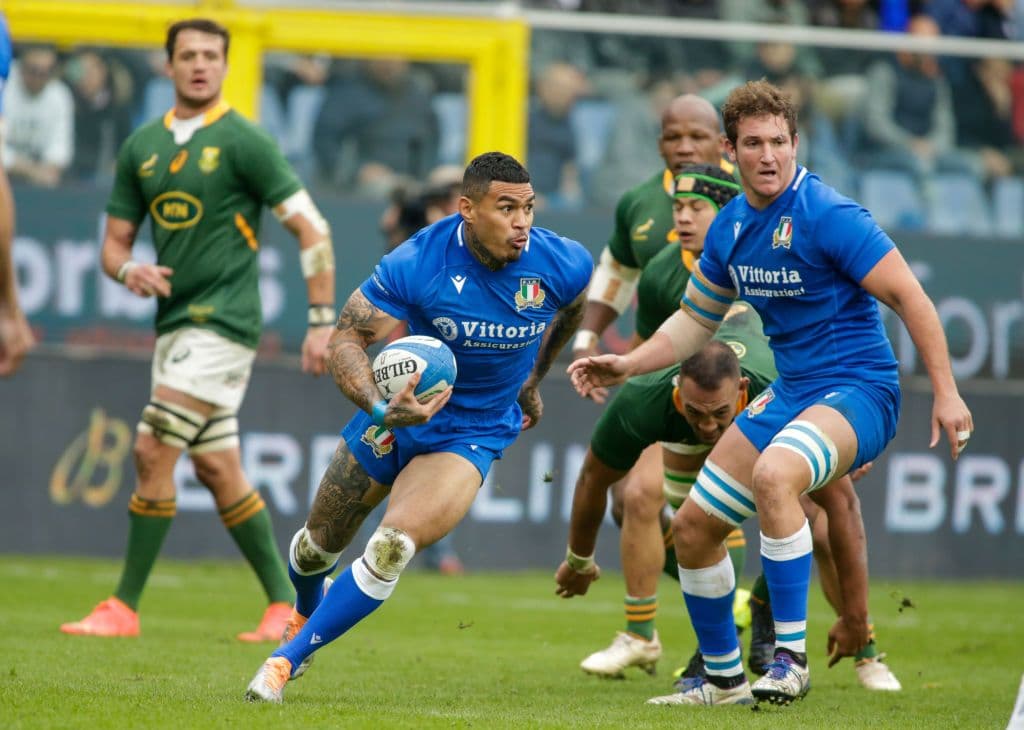Rugby News, Updates and Exclusive Interviews
A hooligans game played by gentlemen, rugby brings together tactical understanding, immense physicality and an intensity known by no other sporting discipline. Sportsboom delivers the world of rugby to you, including all of the latest news, and exclusive interviews.
A breakdown of the highest-paid rugby players in 2025, led by Owen Farrell, Finn Russell, and Cheslin Kolbe, featuring the top 10 earners by salary
Latest Rugby News
Rugby
Rugby
Rugby
Rugby
Rugby
Rugby
The Rules of Rugby Union
The aim of the game here is to score points – through tries, conversions, penalties and drop goals – than your opponent. The game is split into two halves of 40 minutes each, played on a rectangular field with a referee and two assistant referees.
Rugby union is governed by ‘laws of the game’. The most basic one is that the ball cannot be passed forward to a teammate, it must be passed sideways or backwards. To prevent the attacking side from scoring, the defending side are allowed to tackle their opponent to the ground by wrapping their arms around the opponent without tackling above the shoulders.
Rugby balls are made to a standard oval shape, brought together by four panels. In 1892 rugby’s governing body made it compulsory that all balls used for a rugby match were oval shaped. The average weight of a rugby ball is about 400 grams. Professional balls are made with leather encasing a rubber stomach which is inflated with air.
When a ball is dropped forwards (otherwise known as a knock-on) a srum ensues. A scrum asks the eight biggest players (forwards) to bind together and attempt to push the opposing eight forwards overt the ball. A lineout is had when the ball is taken out of play, the team with possession throws the ball into the field where the two opposing teams are able to lift their teammates to retrieve the ball by catching it.
For those looking to add excitement to the matches, various online platforms offer rugby betting.
Major Rugby Union Competitions
International rugby is an incredibly competitive environment, and whilst the pinnacle might be the World Cup, there are many other competitions which are tightly contested around the rugby world.
The Rugby World Cup
The first two World Cups were held in 1987 and 1991, hosted by New Zealand and Australia. The World Cup is now played every four years and hosted by a different nation each time.
This competition – like World Cups in other sporting codes – pits together the very best rugby playing nations for the sport’s top honours. South Africa have won the World Cup a record four times and have successfully defended their title winning in 2019 and 2023, along with New Zealand who have also achieved this incredible feat.
Six Nations Championship
The Six Nations is the oldest rugby championship in the world, dating all the way back to 1882. Originally held between the four United Kingdom countries England, Scotland, Ireland and Wales, France joined in 1910, and Italy completed the six in 2000.
Each nation plays the other once, with home advantage alternating each year, for a European winner to be decided.
The Rugby Championship
Formally known as the Tri Nations Series, this competition started in 1996 and was played between South Africa, New Zealand and Australia until 2011. Argentina joined this tournament to make it four teams and it was then formally rebranded as the ‘Rugby Championship.
Legendary Rugby Union Players
Rugby union has seen a host of players leave their mark on the sport, but none more so than these.
Jonah Lomu
Lomu was a New Zealand professional rugby union player who was widely regarded as the greatest and most influential players in the sport’s history. He was without question one of the most talented sportsmen to grace a rugby field and showed complete dominance with his physicality and absolute brutality.
Lomu was born on the 12th of May 1975 and passed away on the 18th of November in 2015.
Jonny Wilkinson
A flyhalf who represented both England and the British and Irish Lions. He will forever be immortalized in the hearts of English fans as the man who delivered a World Cup title to Britain by kicking England to victory in the 2003 final against Australia.
England won an incredible 67/91 games with Wilkinson in the team and alongside his appearances for the Newcastle Falcons and Toulon, Wilkinson is often seen as the greatest English player in the game.
Brian O’Driscoll
O’Driscoll is the fourth most capped player in rugby union, playing 141 test matches and captaining Ireland on 83 occasions. The outside center played his rugby for Leinster and Ireland from 2003 until he retired in 2012. He also captained the British and Irish lions in 2005 for their tour to New Zealand.
He has gone down as one of the most respected rugby union players and a legend for the Irish.
The Future of Rugby Union
Rugby is a game with continued expansion and technological development. It’s a game which has grown in popularity and now sees nations such as Portugal, Romania, Georgia and Japan joining the ranks of competitive nations and tussling for World Cup representation.
The impact of technology has been immense, not only aiding the way in which the game is packaged for a global audience but also seeing the introduction of a Television Match Official to assist with tight calls. For many, the way in which rugby has seamlessly integrated technology into the sport stands as a model for many others.
A Brief History of Rugby Union
Rugby is said to have originated at Rugby School in Warwickshire, England. Dating back to 1823, when during a football game William Webb Ellis decided to pick the ball up inot his hands and run with it…his reward? We’ll he would begin one of the biggest sports in the world and see the World Cup trophy named after him!
Whilst there is little to support this theory, by 1863 boarding schools around the United Kingdom decided to confirm rules for the game and by 1871 the Rugby Football Union was officially founded.
By the end of 1871 the first international rugby game had already been played between England and Scotland (the English failed to win). By 1908 all major southern hemisphere nations (New Zealand, Australia and South Africa) had formed rugby teams and sent them on international trips to play the northern nations – and so international rugby was born.
Rugby Interviews
Rugby
Rugby
Rugby
Rugby
Rugby Guides and Opinions
Rugby
Rugby
Rugby
Rugby
Rugby
Rugby
Rugby
Rugby
Top Rugby Leagues
Latest Rugby Articles
Rugby
Rugby
Rugby
Rugby
Rugby
Rugby
Rugby














